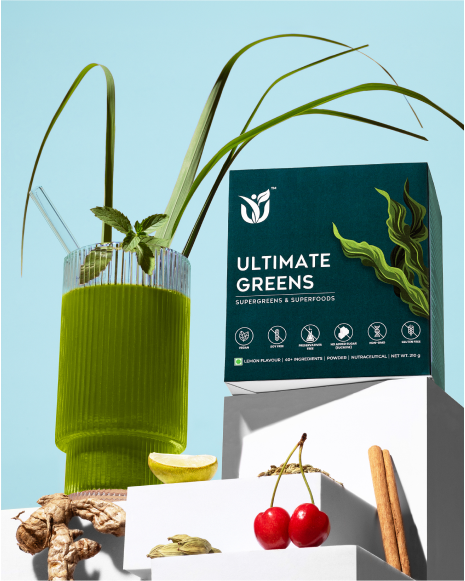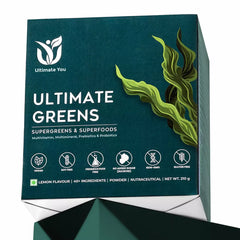Deciding to add protein powder to your daily routine is a big step towards meeting your health goals. When considering adding protein powder to your daily routine, selecting the most suitable option for your individual needs is crucial.
How To Choose The Right Protein Powder For You
With so many options available, choosing the right one can be tricky. To make it easier, we’ve created a guide that covers almost everything you’ll need to finalise the right fit.
Let’s help you choose the best protein powder:
1) Know Your Goals
First things first— Start by figuring out what you want to achieve.
Trying to build muscle, lose weight, or eat more plant-based?
Each goal will answer different needs while simultaneously having a different effect on your body. So take some time, and if you are struggling with health issues, it is also advisable to involve your doctor at this stage.
2) Types of Protein Powders
So, you will find a lot of protein powders on the market. Some of those include:
Whey Protein: Derived from milk, whey protein is excellent for rapid recovery post-workout due to its quick absorption rate.
Casein Protein: Another milk-derived protein, it digests more slowly than whey, making it ideal throughout the day or before bedtime.
Pea Protein: This plant-based protein is hypoallergenic and perfect for vegans or people with dairy allergies.
Hemp Protein: A vegan-friendly option sourced from hemp seeds, hemp protein contains omega-3 fatty acids and is rich in fibre, making it a nutritious choice for fitness freaks.
Soy protein: Contains all essential amino acids and is comparable to animal proteins in terms of protein quality.
Brown Rice Protein: Gluten-free and suitable for various dietary needs, brown rice protein is easily digestible and offers a good amino acid profile, making it a great alternative for those with allergies or specific dietary preferences.
3) Check the Ingredients
Seek out protein powders containing basic ingredients without any artificial additives, such as sweeteners or dyes. Opt for natural sweeteners like stevia; they are a great option.
4) Consider Allergies
If you have allergies to dairy, soy, or gluten, it's important to select a protein powder that is free from these allergens. To ensure the product is safe for you, always carefully read the labels and check for any potential allergens.
5) Look at the Protein Content
When selecting a powder, it's essential to ensure that it contains a considerable amount of protein per serving, ideally targeting around 15-20 grams, as per National Center for Biotechnology Information (NCBI). This range is generally suitable for most individuals and can effectively contribute to their daily protein intake.
6) Think About Digestibility
Some protein powders can upset your stomach, especially whey, if you're sensitive to dairy. Try plant-based options if you have digestive issues.
7) Check for Quality
Make sure to select protein powders that undergo third-party testing to ensure quality and safety. Additionally, seek out certifications like NSF Certified for Sport.
8) Additional Nutrients
Consider opting for a protein powder supplemented with extra vitamins, minerals, or probiotics based on your specific needs. These supplementary nutrients can offer added assistance for immune function, digestive health, and energy metabolism. When choosing a protein powder, it's crucial to assess how these extra elements correspond with your unique health requirements and goals.
9) Read Reviews
Before making a purchase, read reviews from other users to understand their opinions, which can assist you in making an informed decision.
10) Consider Price
Compare prices from different brands. Sometimes, a slightly more expensive powder is of better quality and worth it in the long run.
Here's how to choose the suitable protein powder for different goals and needs:
- Weight loss
Choose protein powder that contains fewer calories and carbohydrates. Further, it is advisable to select powders that contain added fibre, as this can help increase the feeling of fullness and decrease the desire to eat.
- Muscle Gain
Building muscle mass requires high protein intake. So, it is recommended to take whey protein isolate or hydrolysate due to the faster absorption rates. Another best option is casein protein powder, which offers a sustained source of amino acids. It is suitable for consumption before bed to support overnight muscle repair and growth.
- Vegan-friendly
Whether you are a vegan or vegetarian, it's crucial to consider plant-based protein powders like soy, pea, rice, or hemp protein. When choosing these protein powders, ensure that they contain fortified essential vitamins and minerals.
- Diabetics
People with diabetes need to consider the impact of protein powders on blood sugar levels. Opt for protein powders with minimal added sugars and carbohydrates to help regulate blood glucose levels. Sweeteners like stevia or monk fruit can be good alternatives to prevent sudden increases in blood sugar levels.
- Kidney Disease
Seek advice from a medical professional before adding protein to your diet if you have kidney disease. Your doctor might suggest a diet with reduced protein content to ease the burden on the kidneys.
- Gastrointestinal Problems
Avoid protein powders with added artificial sweeteners, flavours, or preservatives that may exacerbate gastrointestinal issues. Instead, look for hydrolysed protein supplements that come with minimal ingredients and natural flavourings. They can quickly be digested and help reduce the risk of digestive discomfort.
- Allergies
Individuals who have allergies to dairy products should not purchase whey and casein protein powders that come from milk. Instead, they should consider using plant-based protein powders like soy, pea, rice, or hemp protein. It is essential to make sure that the selected protein powder is certified as dairy-free.
Bottom Line
Now that you're armed with the knowledge to choose the perfect protein powder, it's time to take action and start seeing results. Remember, consistency is key when it comes to any fitness or health goal.
Make sure to incorporate your chosen protein powder into your daily routine, whether it's post-workout shakes, smoothies, or added to your breakfast. By taking care of your body with the right nutrition, you're setting yourself up for success. For top-notch quality and ingredients you can trust, consider trying Ultimate You Whey Protein powders.
Don't wait any longer—start your protein journey today and experience the benefits firsthand!
Disclaimer
The information provided is for educational purposes only and is not intended to be a substitute for medical treatment. If you're pregnant, nursing, taking medication, or have a medical condition, it's better to consult a healthcare professional. Ultimate You does not provide any guarantee regarding the accuracy, adequacy, completeness, legality, reliability, or usefulness of the information and disclaims any liability arising from it.









